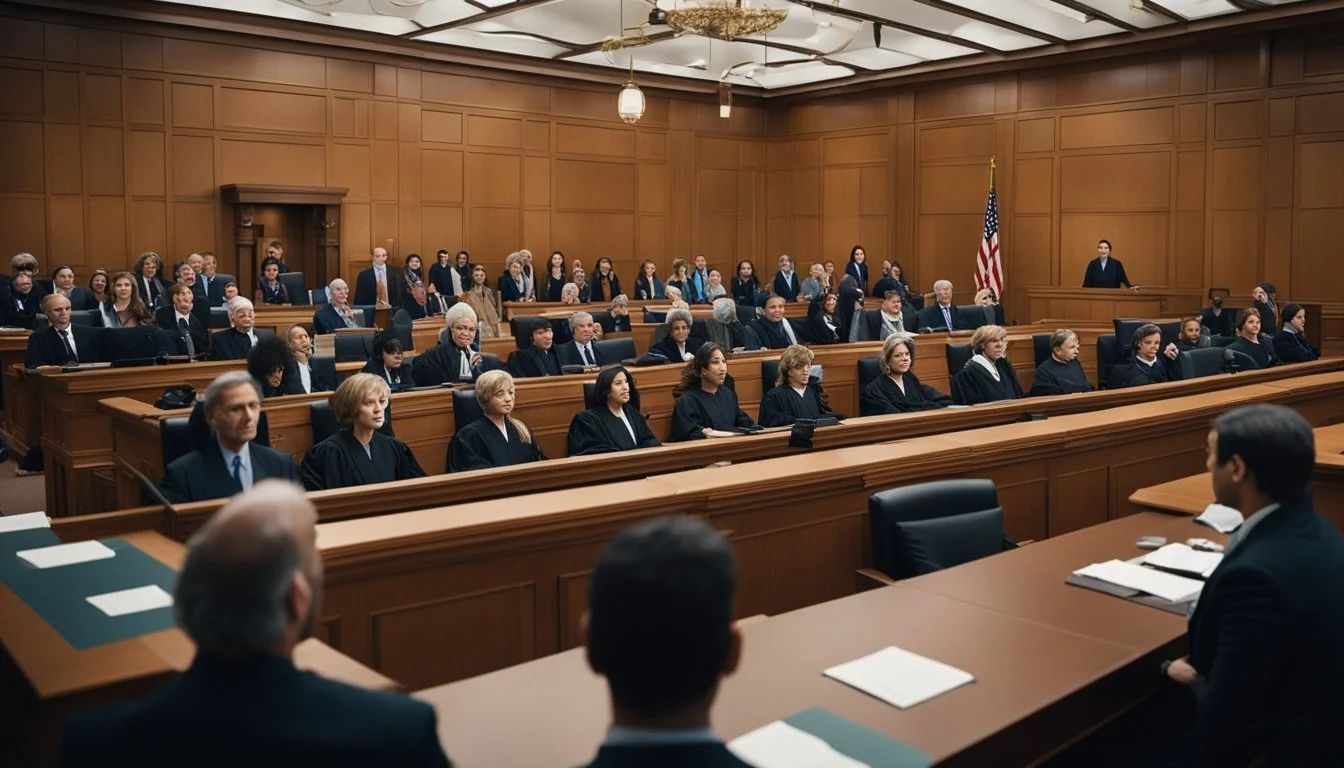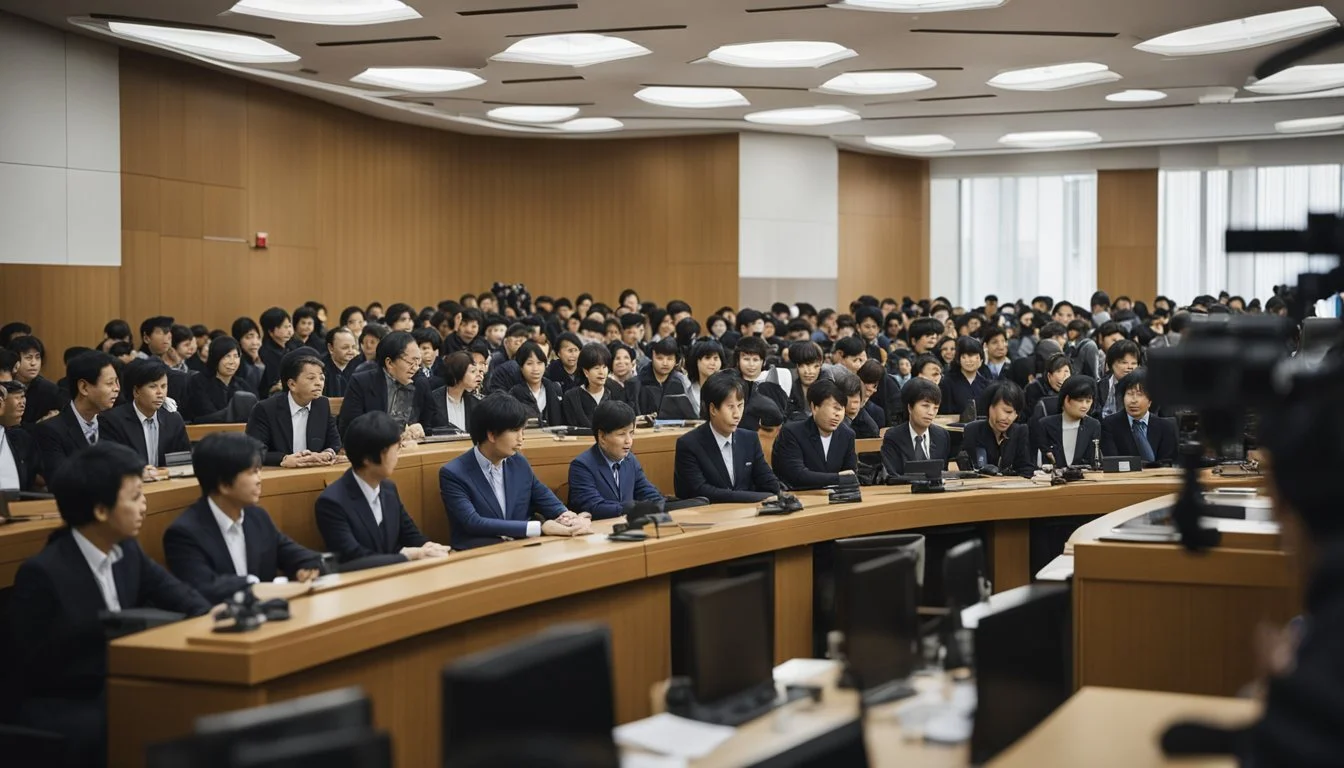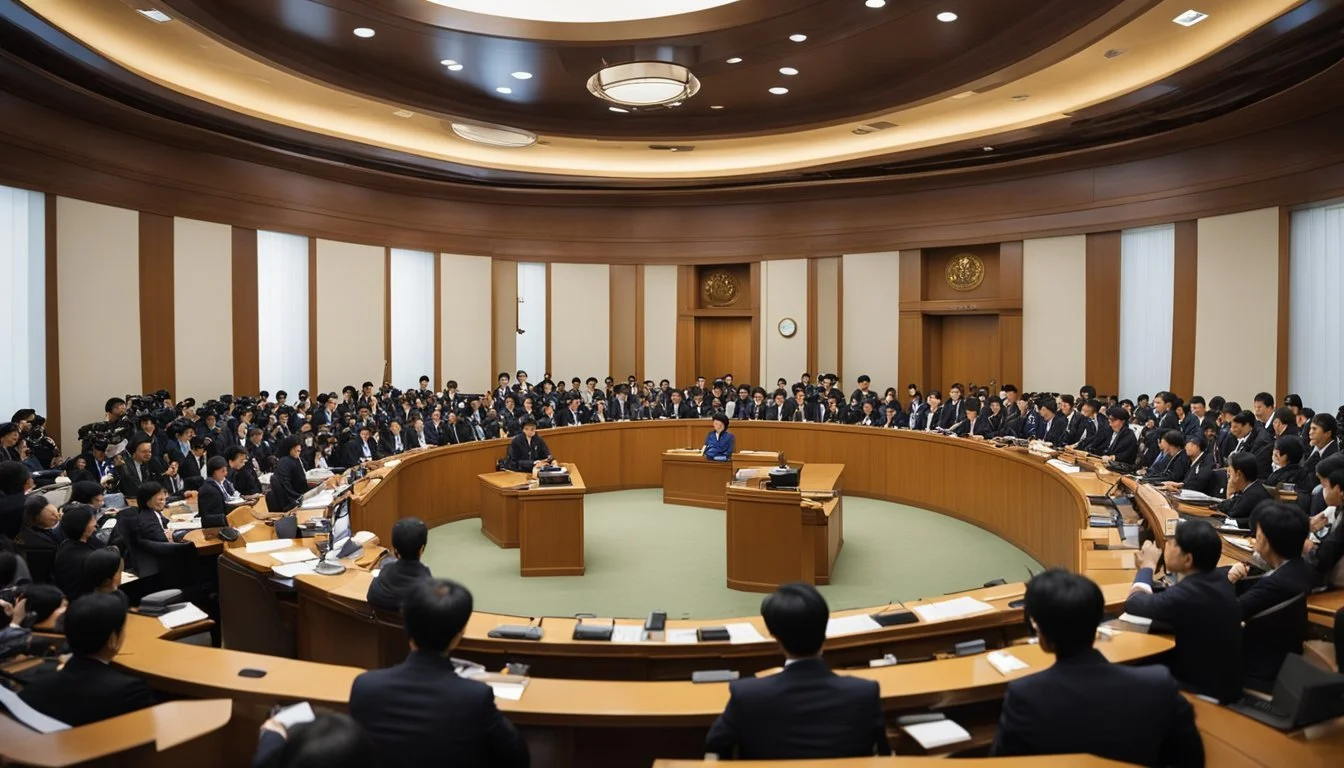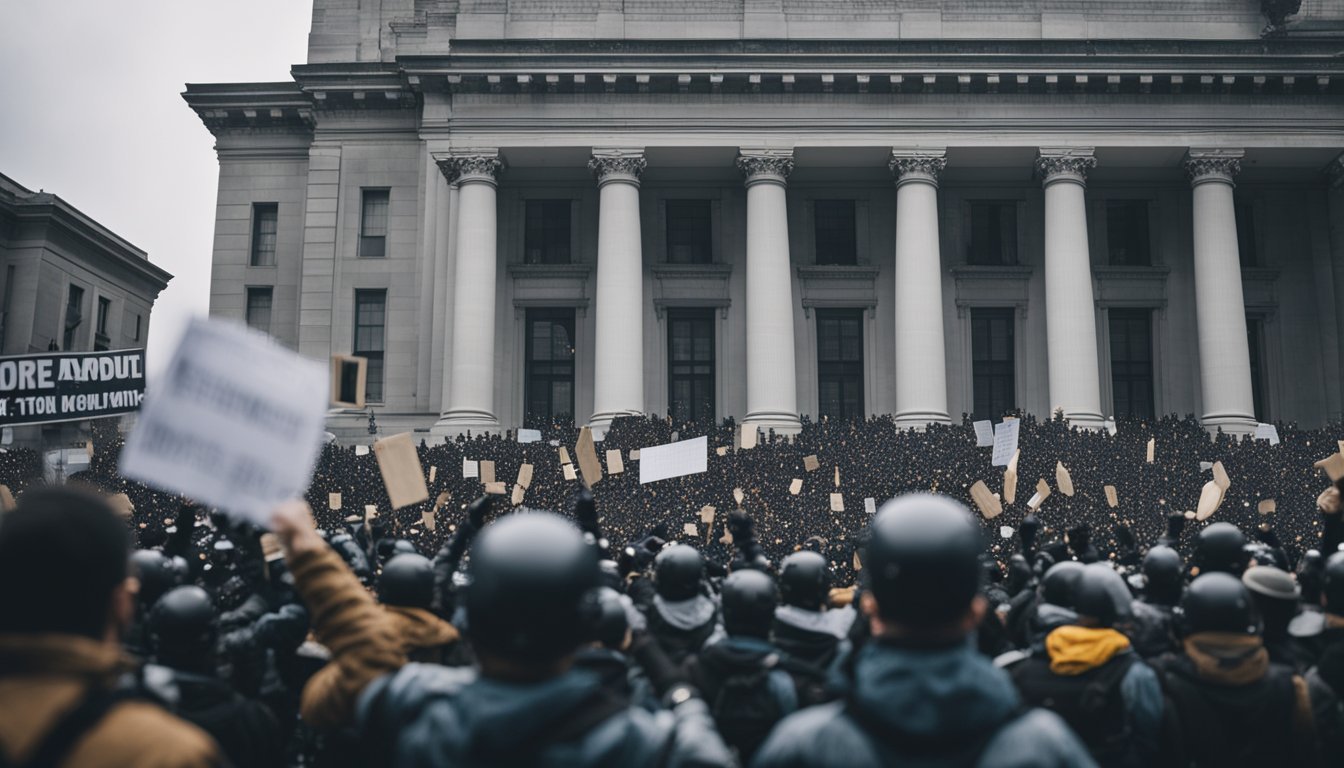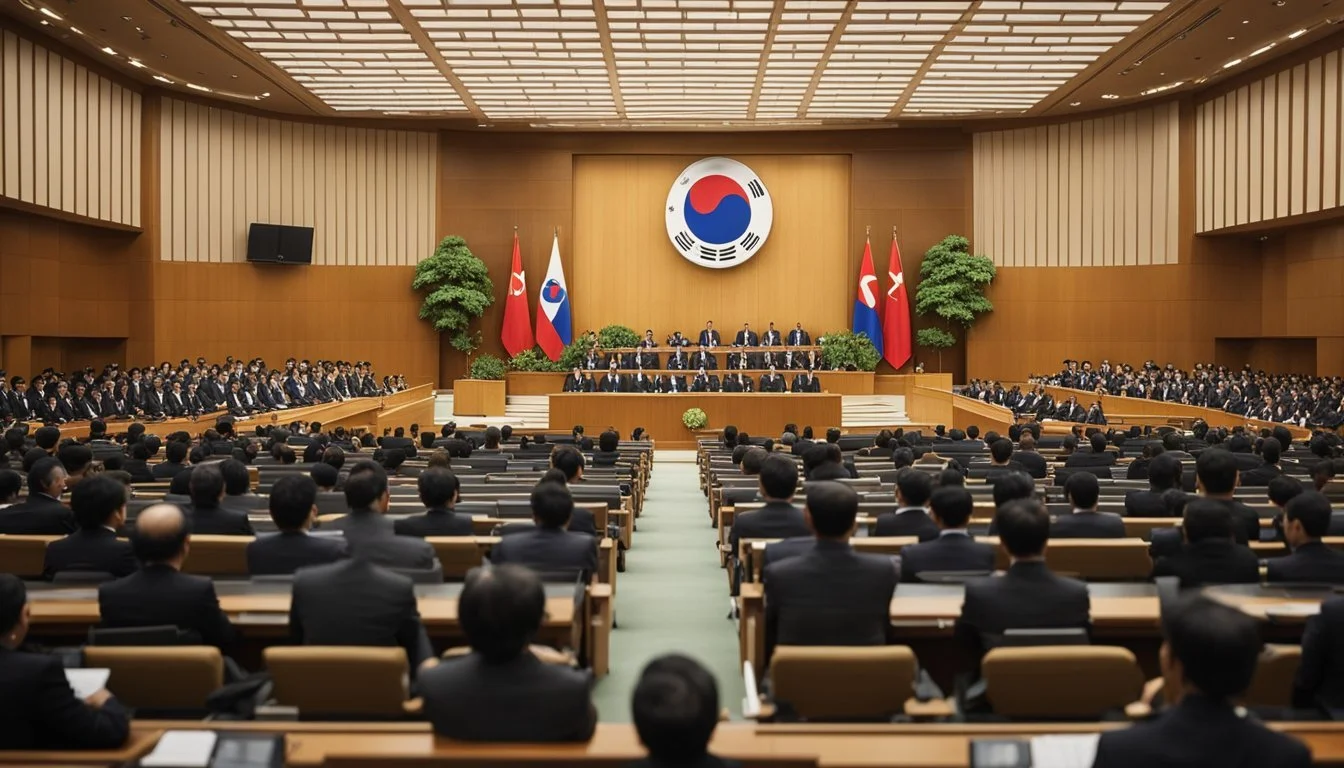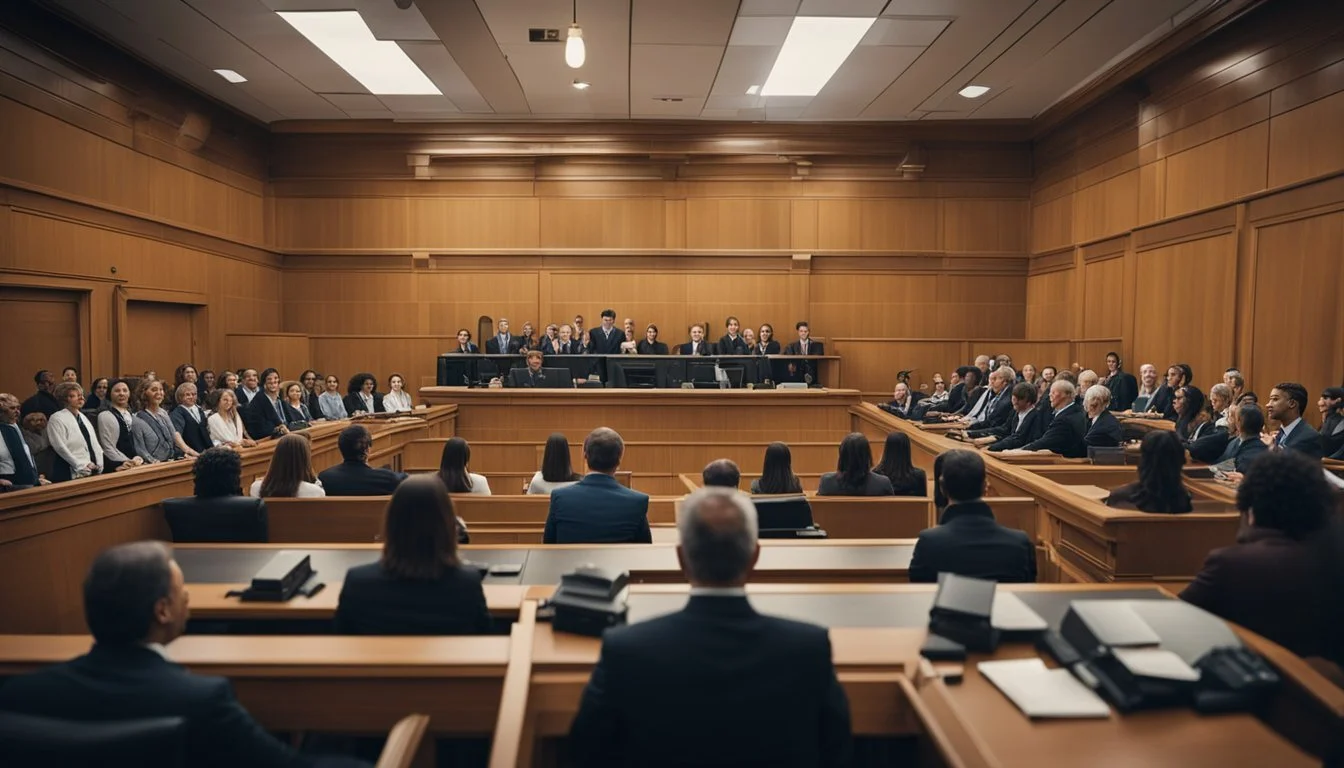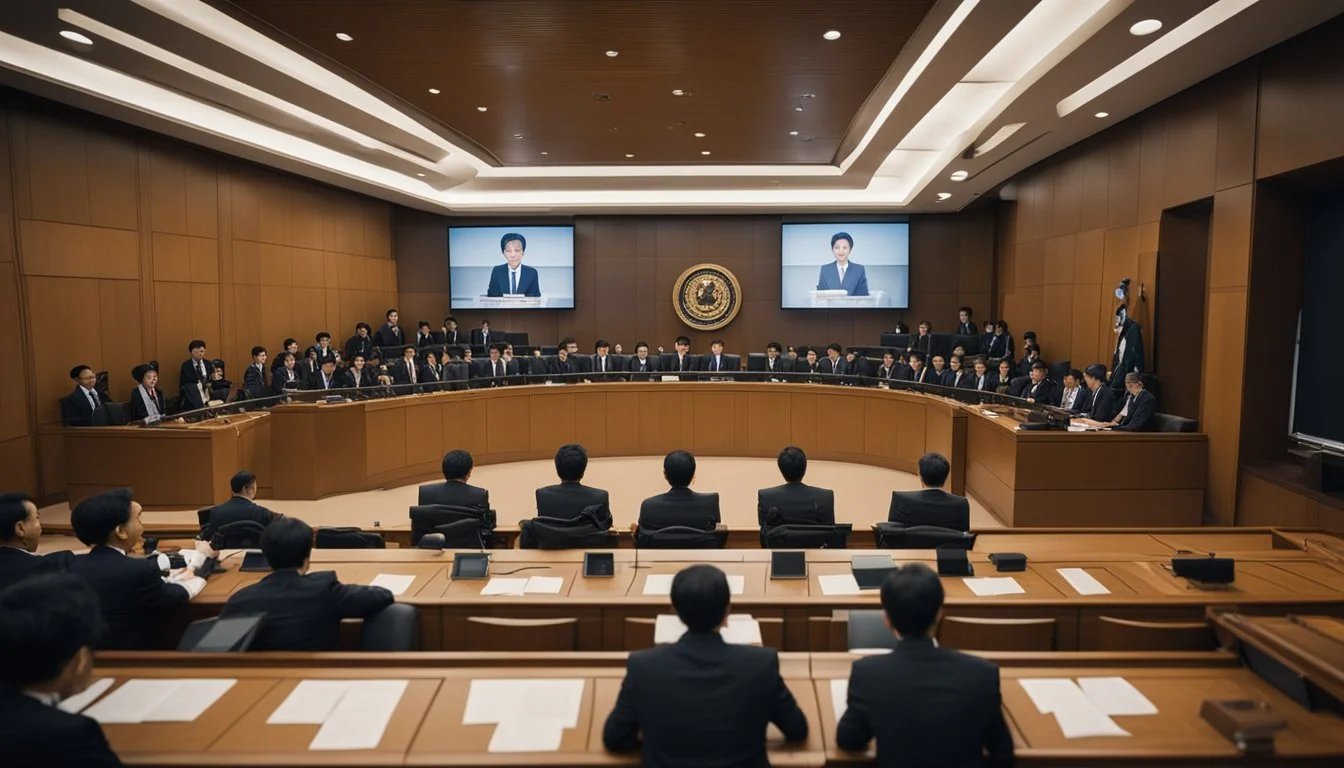14 Films Examining the Impeachment of Park Geun-hye
Key Moments and Insights
The impeachment of Park Geun-hye, the former President of South Korea, stands as one of the most significant political events in recent history. Films examining this event provide a deep dive into the intricacies of political power, corruption, and the public's reaction in South Korea.
These films offer viewers a compelling look into the factors leading to her impeachment, such as the political scandal involving her aide, Choi Soon-sil, and the broader socio-political implications. Through various cinematic lenses, they capture the drama, tension, and the eventual downfall of Park Geun-hye's presidency.
1) 1987: When the Day Comes (2017)
"1987: When the Day Comes" is a South Korean political thriller directed by Jang Joon-hwan. The film is set in 1987, a pivotal year in South Korea's history, and closely follows the events leading to the June Democratic Uprising.
The movie is based on the true story of the death of a student, which sparked nationwide protests. These protests eventually led to significant democratic reforms in South Korea.
The film features an ensemble cast including Kim Yoon-seok, Ha Jung-woo, Yoo Hae-jin, Kim Tae-ri, Park Hee-soon, and Lee Hee-joon. Their performances received critical acclaim.
The film's release coincided with contemporary political events in South Korea, notably the impeachment of President Park Geun-hye. This timing added weight to the film's commentary on democracy and political activism.
"1987: When the Day Comes" has been praised for its intense narrative and historical accuracy. It compellingly portrays the resilience and courage of the South Korean people during a time of political turmoil.
More information can be found on Wikipedia.
2) Inside Men (2015)
"Inside Men" is a South Korean political thriller that delves into the deep layers of corruption within the political and corporate sectors.
The film showcases the intricate relationships between politicians, businessmen, and the media. It follows the journey of a political henchman who becomes disillusioned with the system and seeks revenge.
The performances in "Inside Men" stand out, with actors portraying complex characters who navigate a world of deceit and ambition.
The movie provides a gritty and realistic portrayal of how power and influence mold the public's perception and affect political outcomes.
"Inside Men" received critical acclaim for its storytelling and its fearless examination of corruption. It is often cited as a must-watch for those interested in political dramas.
For more information, visit Wikipedia or IMDb.
3) V.I.P. (2017)
"V.I.P." is a South Korean crime thriller that delves into the intertwining worlds of politics, corruption, and the influence of power. Directed by Park Hoon-jung, the film narrates the story of a serial killer who is protected by powerful figures in both North and South Korea.
The film's plot centers around Kim Gwang-il, a notorious criminal played by Lee Jong-suk. As the story unfolds, viewers witness the intricate relationships between government officials and criminals, shedding light on broader themes of corruption and political influence.
In "V.I.P.," the connections to real-world political scandals, like the impeachment of Park Geun-hye, become evident. The film illustrates how individuals in positions of power can manipulate systems for personal gain.
Park Hoon-jung's direction ensures that "V.I.P." maintains a gripping pace, with strong performances from the cast adding depth to the narrative. The movie offers a stark look at the darker side of political landscapes, making it a relevant piece in the context of South Korea's own political turmoil.
For more information, visit Wikipedia.
4) The Attorney
The Attorney (2013) is a South Korean courtroom drama film inspired by the real-life events involving attorney Roh Moo-hyun, who later became the President of South Korea.
The movie tells the story of a tax attorney who takes on a human rights case after witnessing the injustices faced by a young student accused of being a communist.
Though the movie primarily focuses on the late 1970s and early 1980s, it reflects themes of government corruption and the misuse of power relevant to the political climate during Park Geun-hye's impeachment scandal.
It offers a lens through which viewers can understand the complex dynamics between the legal system, political figures, and the public.
The Attorney presents a powerful narrative that underscores the importance of legal and moral integrity in governance, resonating with the desire for justice during Park Geun-hye's impeachment.
For more details about the film, visit IMDB.
5) The Mayor (2017)
The Mayor explores the political landscape of Seoul, focusing on Mayor Byeon Jong-gu's quest for a third term. Within this context, the film examines themes of political ambition and corruption.
Park Geun-hye's impeachment enhances the film's relevance, reflecting broader issues of governmental misconduct. The political scandal involving Park and her aide, Choi Soon-sil, brought to light systemic corruption.
The film delves into manipulative tactics and power struggles within politics. Byeon Jong-gu's character highlights how politicians often prioritize personal power over public service.
The Mayor's portrayal of media influence and public opinion shapes the narrative, making it a fitting addition to the list of films that examine political corruption and its consequences.
External link: IMDb
6) The Drug King (2018)
"The Drug King" offers a vivid depiction of South Korea's underworld in the 1970s. Though not directly about Park Geun-hye's impeachment, the film showcases the deep-seated corruption that has plagued the nation, providing context for the political climate that allowed such scandals to emerge.
Starring Song Kang-ho, the movie follows Lee Doo-sam, a small-time narcotics smuggler who rises to power. His journey mirrors many real-life stories of how individuals exploit systemic weaknesses for personal gain, which resonates with the corruption seen in the Choi Soon-sil scandal involving Park Geun-hye.
By portraying the intricate operations of the drug trade and its impact on society, the film provides viewers with a broader understanding of the mechanisms of corruption. This helps in comprehending the complex environment within which political figures like Park Geun-hye and her aides operated.
This film, though fictional, underscores the pervasive nature of corruption and is a pertinent addition to the list of films examining themes relevant to Park Geun-hye's impeachment.
More information on "The Drug King"
7) A Taxi Driver (2017)
"A Taxi Driver" is a critically acclaimed film that depicts the 1980 Gwangju Uprising in South Korea.
Set against a backdrop of political unrest, it follows a Seoul taxi driver who unintentionally becomes involved in a significant moment of South Korean history.
The film provides a poignant and human perspective on the events leading to the calls for democracy.
With deft direction and powerful performances, "A Taxi Driver" captures the mood of the era and offers insight into the public's reaction to political corruption and demands for justice.
The story is both heart-wrenching and inspiring, highlighting ordinary citizens' bravery during tumultuous times.
For more details, visit IMDB.
8) The Man Standing Next (2020)
"The Man Standing Next" is a South Korean historical political thriller. Directed by Woo Min-ho, the film stars Lee Byung-hun, Lee Sung-min, Kwak Do-won, and Lee Hee-joon.
The film is set in the 1970s and explores the period leading up to the assassination of President Park Chung-hee. Central to the plot is the character based on Kim Jae-gyu, the head of the Korean Central Intelligence Agency (KCIA).
Kim Jae-gyu’s role in the assassination is complex and multifaceted. The film portrays him as a conflicted figure, grappling with loyalty and disillusionment.
"The Man Standing Next" offers an intense look into the power struggles within the South Korean government. It delves into the motivations behind the political decisions and actions of that era.
For more information, visit Wikipedia.
9) Steel Rain (2017)
"Steel Rain" is a South Korean political thriller film that explores tensions on the Korean Peninsula.
Despite being primarily a work of fiction, the movie touches on political themes relevant to Park Geun-hye's presidency and the climate surrounding her impeachment.
The plot revolves around a former North Korean agent and a South Korean official who must prevent a nuclear war amid political and military crises.
The connection to the impeachment lies in its portrayal of governmental instability and the delicate balance of power within the region.
The film illustrates the potential ramifications of political turmoil, making it an insightful watch for those interested in the broader context of regional politics during Park's tenure.
For further details, visit the Wikipedia page.
10) The President's Last Bang (2005)
"The President's Last Bang" is a South Korean film directed by Im Sang-soo.
The movie portrays the assassination of President Park Geun-hye's father, President Park Chung-hee, which marked a turning point in South Korean history.
It explores the political intrigue and the chaotic environment leading up to the event.
The film delves into the power struggles within the South Korean government at the time.
It shows the relationship between President Park Chung-hee and his aides, providing a perspective on the political atmosphere of the era.
Im Sang-soo uses a blend of dark humor and satire to depict the gravity of the situation.
The narrative presents the motives and actions of the individuals involved in the assassination.
For those interested in understanding past political climates and their impact on contemporary issues, this film offers valuable insights.
Learn more about "The President's Last Bang" here.
11) The King (2017)
"The King" explores the rise and fall of a prosecutor who becomes deeply involved in political corruption.
The film, directed by Han Jae-rim, delves into South Korea's turbulent political landscape, showcasing the main character's manipulation of legal and political systems.
Park Tae-soo, played by Jo In-sung, starts as an ambitious prosecutor. His journey leads him into a web of corruption, mirroring real-world scandals that culminated in Park Geun-hye's impeachment.
The film's narrative highlights the influence and power struggles within South Korea’s elite. By dramatizing these dynamics, "The King" provides a critical view of the systemic issues amid Park Geun-hye's political downfall.
12) The Spy Gone North (2018)
The Spy Gone North is a South Korean spy drama film released in 2018.
Directed by Yoon Jong-bin, it stars Hwang Jung-min, Lee Sung-min, Cho Jin-woong, and Ju Ji-hoon.
The film is loosely based on the true story of Park Chae-seo, a former South Korean agent.
Park infiltrated North Korea's nuclear facilities during the 1990s.
The plot focuses on his covert operations and the political complexities he faces.
The film highlights the tense relationship between North and South Korea.
It sheds light on espionage activities and the risks faced by secret agents.
The movie was a commercial success and received critical acclaim for its intense narrative and strong performances.
For more information on The Spy Gone North, visit IMDB.
13) The Truth Beneath (2016)
"The Truth Beneath" is a South Korean thriller that premiered in 2016. Directed by Lee Kyoung-mi, the film intertwines political intrigue with personal tragedy.
The plot centers around a couple, Jong-chan and Yeon-hong, whose daughter mysteriously disappears during an election campaign. As Yeon-hong delves deeper into the mystery, alarming secrets and corruption are uncovered.
The film explores themes such as power, corruption, and the lengths people will go to protect their interests. It is a gripping portrayal of the dark side of politics and human nature.
For more information, please visit The Truth Beneath - Wikipedia.
14) The Terror Live (2013)
"The Terror Live" is a South Korean thriller that delves into the tension-filled world of media and terrorism.
The story centers around Yoon Young-hwa, a disgraced news anchor who receives a live call from a terrorist. The terrorist threatens to blow up a bridge unless his demands are met.
Yoon sees this as an opportunity to regain his status and agrees to air the terrorist's demands live.
However, things quickly spiral out of control, placing him and others in grave danger.
While the film does not directly address the impeachment of Park Geun-hye, its portrayal of media manipulation and political corruption resonates with the themes surrounding her scandal.
It highlights the lengths to which individuals might go for personal gain, reflecting the intricate power dynamics and ethical dilemmas prevalent in political scandals. The film's intense, confined setting enhances its suspense, making it a gripping watch.
For more information, visit Wikipedia.
Historical Context
This section provides an in-depth look at the significant elements of Park Geun-hye's presidency and examines the political climate that ultimately led to her impeachment.
Overview of Park Geun-hye's Presidency
Park Geun-hye, the daughter of former South Korean President Park Chung-hee, became the first female president of South Korea in 2013. Her presidency was marked by initial public optimism as she promised economic revitalization and a stronger national security stance.
Her tenure, however, was overshadowed by controversy. The mismanagement of the Sewol Ferry Disaster in 2014 resulted in the deaths of over 300 passengers, predominantly students, which led to widespread public outrage and a significant decline in her approval ratings.
Another major controversy involved Park's close confidante, Choi Soon-sil, who was accused of using her relationship with Park to meddle in state affairs and of embezzling funds. This scandal severely damaged Park's reputation and eventually paved the way for impeachment proceedings.
Political Climate Leading to the Impeachment
By late 2016, South Korea's political environment was highly charged and contentious. Accusations of corruption and abuse of power against President Park and Choi Soon-sil intensified, leading to massive public protests across the country demanding Park's resignation.
On December 9, 2016, the National Assembly voted overwhelmingly to impeach Park, with 234 out of 300 members in favor. This vote led to the temporary suspension of her presidential powers, pending a Constitutional Court decision.
On March 10, 2017, the Constitutional Court unanimously upheld the impeachment. This not only concluded Park's presidency but also signaled a significant moment in South Korean history, highlighting the public's demand for accountability and transparency in governance.
Throughout this period, South Korea faced substantial political instability, with the impeachment process demonstrating the power of civic engagement and the checks and balances within the country's democratic system.
Legal and Political Implications
The impeachment of Park Geun-hye had significant legal and political ramifications, reshaping South Korea's political landscape and setting precedents in constitutional procedures for impeaching a sitting president.
Constitutional Procedures for Impeachment
The constitutional framework in South Korea requires a formal impeachment motion by the National Assembly. For Park Geun-hye, this process began on December 9, 2016, when the assembly voted overwhelmingly in favor of impeachment. Out of 300 members, 234 voted for her removal. This motion was then transferred to the Constitutional Court.
The Court's role was to determine if the grounds for impeachment were legitimate under the law. On March 10, 2017, the Constitutional Court unanimously upheld the National Assembly's vote. This marked the first time a South Korean president was removed from office through impeachment. The decision was pivotal in demonstrating the functionality of democratic checks and balances within South Korean governance.
Key Legal Arguments and Court Rulings
The primary legal arguments against Park Geun-hye involved her breaches of the constitution and the law, specifically the accusations of corruption and abuse of power linked to her confidante, Choi Soon-sil. The charges included coercing companies to donate large sums to foundations controlled by Choi and providing her undue influence over state affairs.
The Constitutional Court's ruling focused on verifying these charges. They found compelling evidence that Park had indeed allowed non-authorized personnel to intervene in state matters and had leaked confidential information. These actions were deemed serious violations that justified her removal. The Court emphasized the need to maintain constitutional order and public trust in the integrity of presidential duties.


